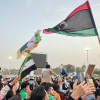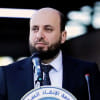Syria: Potential fuse for greater conflagration

As the world is now well aware, Syria has been consumed by violence for years now. What people are less aware of, however, is why it has been raging for so long. According to the western narrative, the Syrian conflict — the deadliest conflict of the 21st century — started with Assad's forces violently clamping down on peaceful oppositions and protestors in March 2011, and will not end until the dictator, Assad, is removed from power, which is why they have vowed to continue their support for what they say are the legitimate democratic opposition groups.
The alternative narrative, mainly propagated by Assad and governments outside the western alliance bloc — Russia, China, etc. — is that outside forces are funding, arming and training violent opposition groups, to bring about regime change in Syria, which is keeping the conflict ongoing, and has nothing to do with bringing democracy to Syria.
Before digging deeper, it is important to remember that some of the same allegations that are now being made against Assad — of being a dictator, oppressing his own people, etc. — were also made against Saddam Hussein and Muammar Gaddafi prior to the interventions in both Iraq and Libya. Other allegations later proven to be false — Saddam having weapons of mass destruction, for example — were also made by the accusers, who, ironically, had good relations with both Saddam and Gaddafi, prior to condemning them.
What has followed those interventions is now as clear as day. Libya, which was the richest country in Africa before the intervention, is now a failed state. Iraq has had no end to violence since the 2003 intervention and is also a failed state.
Despite the disastrous interventions in Iraq and Libya and the fact that the majority of Syrians, even according to western polls, support Assad, (Le Figaro poll: Over 70 percent want Syria's Assad to remain in power, RT, October 31, 2015) the West has kept insisting that 'Assad must go' in the 'interest of democracy'. And to justify their stance, western governments have pointed to several atrocities allegedly committed by Assad against his own people. Some of which are, at best, dubious.
Take the West's allegation of Assad using chemical weapons in March 2013 for instance. In a report titled "Possible Implications of Faulty US Technical Intelligence," Richard Lloyd, a former United Nations weapons inspector, and Theodore Postol, a professor at the Massachusetts Institute of Technology, after examining the delivery rocket's design, concluded that the Sarin gas "could not possibly have been fired at East Ghouta from the 'heart', or from the Eastern edge, of the Syrian government controlled area". Their claim has also been backed by others, including US missile experts (MIT study of Ghouta chemical attack challenges US intelligence, RT, January 16, 2014). Meanwhile, Die Welt a German daily reported that "the British secret service was in possession of a sampling of the used Sarin [on August 21, 2013, in Ghouta]. An analysis [of which] showed it not to be Sarin from the Syrian regime, but from the inventory of al-Nusra."
This indicates that western governments, through their intelligence wings, knew that Assad may not have been responsible for the attack, as concluded by the UN's Carla Del Ponte (UN's Carla Del Ponte says there is evidence rebels 'may have used sarin' in Syria, The Independent, May 6, 2013).
Why then did the West try to justify an intervention in Syria under that pretext? Why does it keep insisting then that it must have been Assad, without any conclusive evidence? It may have something to do with Assad's refusal to let a Qatari pipeline run through Syria, as I argued in my article 'Why Turkey is so important' published by The Daily Star on August 17. With that in mind, the West has admittedly supported what they call 'moderate opposition groups' such as the Free Syrian Army and others.
However, according to former CIA officer Ray McGovern, the groups that the US is funding are not really moderates but are considered to be extremists by many ('US pretends there are moderates in Syria, Russia understands they are all terrorists', RT, August 27). Syrians too seem to feel the same. A survey conducted by the Opinion Research Business International found that 81 percent of Syrians believe that ISIS "is a foreign/American made group". Such suspicions may not be totally baseless.
As a former director of the US National Security Agency, General William Odom once remarked, "the US has long used terrorism" to achieve its objectives… "In 1978-79 the Senate was trying to pass a law against international terrorism — in every version they produced, the lawyers said the US would be in violation" (America Created Al-Qaeda and the ISIS Terror Group, Centre for Research on Globalisation, September 19, 2014). On the British side, former Foreign Secretary Robin Cook similarly wrote a column for The Guardian in which he remarked that "Al Qaeda was unquestionably a product of Western intelligence agencies" (The struggle against terrorism cannot be won by military means, July 8, 2005).
Even the New York Times reported on March 14, 2015, that "[the CIA] has sometimes inadvertently financed the very militants it is fighting". That their support was actually 'inadvertent', however, is quite hard to believe. As according to the Financial Times (London), militants in Syria were being supported by regional powers and "The Americans, of course, knew what was going on… [but had] ignored it". That too, despite recognising Assad's popularity in their own assessment report which was unearthed by the Information Clearing House; (NATO Data: Assad Winning the War for Syrians' Hearts, June 4, 2013) refusing to sway from its seemingly crumbling narrative.
I say crumbling because many high ranking officials within western administrations have already broken free from it. They include the likes of General Wesley Clark, former Supreme Allied Commander Europe of NATO, who said on CNN that "ISIS got started through funding from our [America's] friends and allies". Former US Chairman of the Joint Chiefs of Staff, General Martin Dempsey, who told Congress in 2014, in response to a question by Republican Senator Lindsay Graham that "I know [of] major Arab allies [to the US] who fund them [ISIS]". Former head of the US Defence Intelligence Agency, Michael T. Flynn, who admitted to Mehdi Hasan on Al-Jazeera in 2015 that it was a "wilful decision" by the US government to support an insurgency [ISIS] composed of "Salafists, Al-Qaeda and Al-Nusra", among others.
And although this in itself is concerning, what is of even more so is the refusal on part of western governments to back down from its aim to remove Assad despite Russia entering the fray. Because now we have Russia doing air raids in Syria after being requested to do so by the Syrian government. We have NATO countries doing their air raids, 'illegally under international law', as they have not been invited by the Syrian government to enter its airspace, nor been given permission to do so by the UN Security Council. Turkey reportedly has entered Syria recently, allegedly, by some, to fight ISIS, and by others, to fight the Kurds. China said that they too are going to increase their involvement in Syria to help the government fight extremists.
What this means is that Syria is quickly turning into a powder-keg that can blow up any minute, leading to a much greater conflagration. Thus, it is best now for all sides to let cooler heads prevail rather than escalate the violence that has already led to millions of Syrians fleeing the war-torn country as refugees — contributing to the displacement of the highest number of people since the end of World War II — any further.
The super-powers involved have a special responsibility in that regard, as it is the unimaginable suffering of the Syrian people, who have, perhaps, had the least say in all of this, that is the greatest tragedy humanity is facing by allowing the crisis to perpetuate for this long.
The writer is a member of the Editorial team, The Daily Star.

 For all latest news, follow The Daily Star's Google News channel.
For all latest news, follow The Daily Star's Google News channel. 








Comments